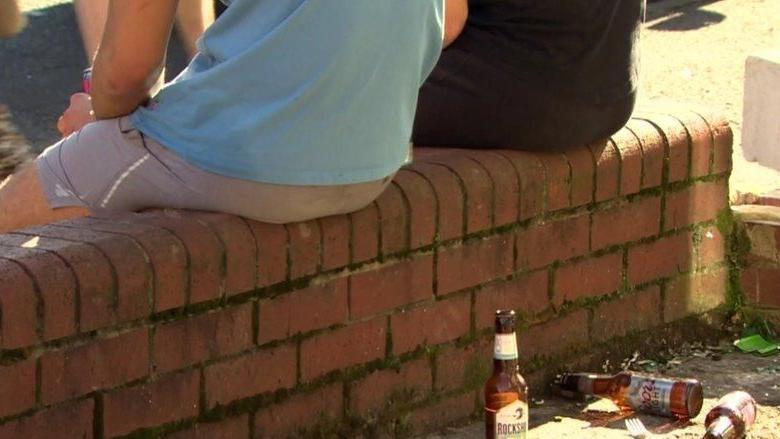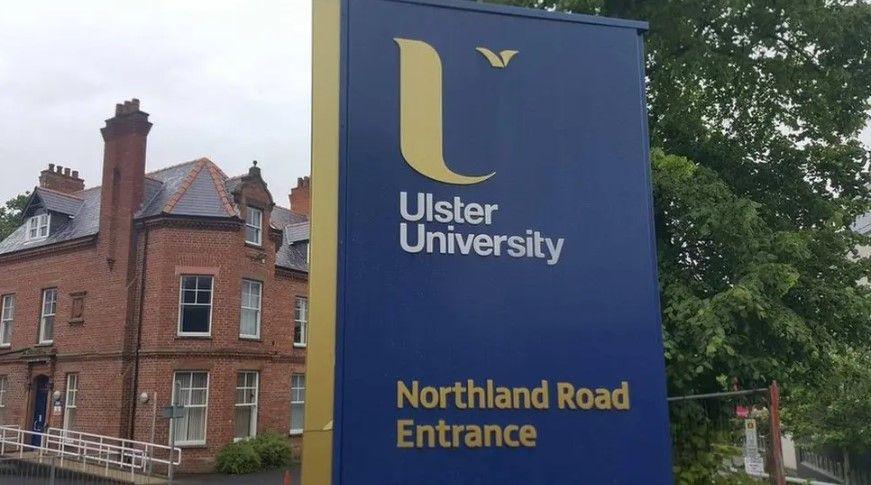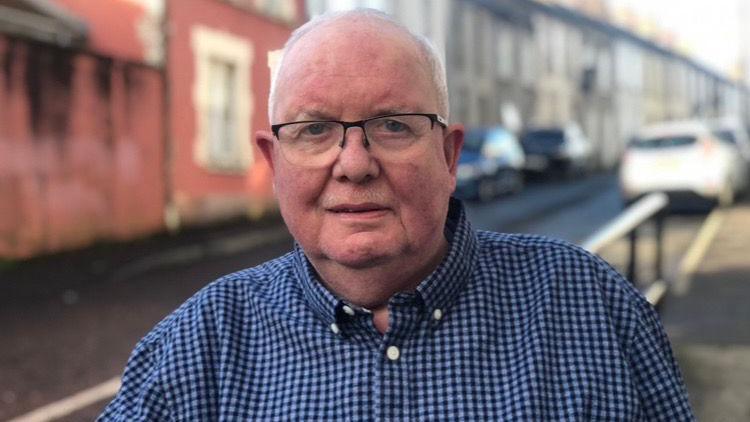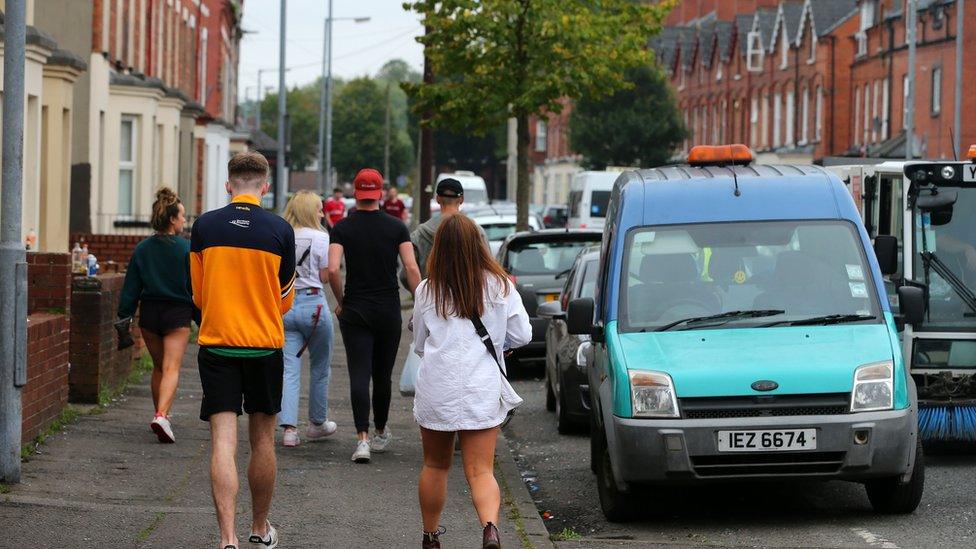University expansion will not create 'Derry Holyland'

There are hopes 10,000 students will be studying at UU's campus in Londonderry by 2032
- Published
Increasing student numbers at Ulster University's (UU) campus in Londonderry will not turn parts of the city into "Derry's Holyland", a senior UU figure has said.
Earlier this year, people living close to the Derry campus told BBC News NI they had concerns about where a growing student population would be accommodated.
Residents said they were worried the area could see some of the problems experienced in the Holyland in Belfast, which has been synonymous with its large student population, as well as spates of anti-social behaviour.
But Professor Paul Seawright, UU deputy vice-chancellor, has said a "Holyland situation" will not happen in the north west.

Prof Seawright said student accommodation was a "challenge" across the island of Ireland
"You're not going to see a Holyland situation here in Derry, I can guarantee that," he told BBC Radio Foyle's North West Today programme.
In February, residents living close to Ulster University's campus in Derry told BBC News NI they wanted a cap on the number of houses in multiple occupation (HMOs) approved in the area.
What are HMOs?
A house in multiple occupation is a property rented out by at least three people who share facilities like the bathroom and kitchen, also referred to as a "house share".
The tenants must be from more than one household for it to be an HMO.
All HMOs must be licensed by their local council unless a temporary exemption notice is in effect.
Belfast City Council's NIHMO unit administers the regulation of HMOs on behalf of each of Northern Ireland's 11 councils.
The Holyland area has the highest proportion of HMOs in Belfast.

The Holyland area of Belfast is a popular choice for student housing
Prof Seawright said student accommodation was a "challenge" faced by academic institutions across the island of Ireland, one which Ulster University was "chipping away at".
He added that a number of initiatives are underway to find accommodation for new Derry students.
"We need people to come and, like in Belfast, build those purpose-built student accommodations. We're starting to see some interest in that but it is a challenge.
"There will always be a mixed solution, they're not all going to be in purpose-built student accommodation… we're reaching out to developers to invest in that opportunity," he said.

The expansion of the campus in Derry is seen by many in the north west as a key economic driver for the region
Under Ulster University's plans to expand numbers in Derry, it is hoped some 10,000 students will be studying at the campus by 2032.
A report exploring the expansion of student numbers in the city published last year said that would help address regional imbalance and be "transformative" for the region.
Prof Seawright said the expanded student body will be "living in the city and they'll be dispersed all over and through communities".
"That dispersal is the key, so they're not just concentrated in one area," he added.
"I think that's what people are panicked about and we need to work with communities to make sure that doesn't happen."
Prof Seawright said in the upcoming academic year student numbers at the Derry campus would reach around 6,300 with some 7,000 students studying in the city by 2028.
- Published6 February

- Published27 September 2020
